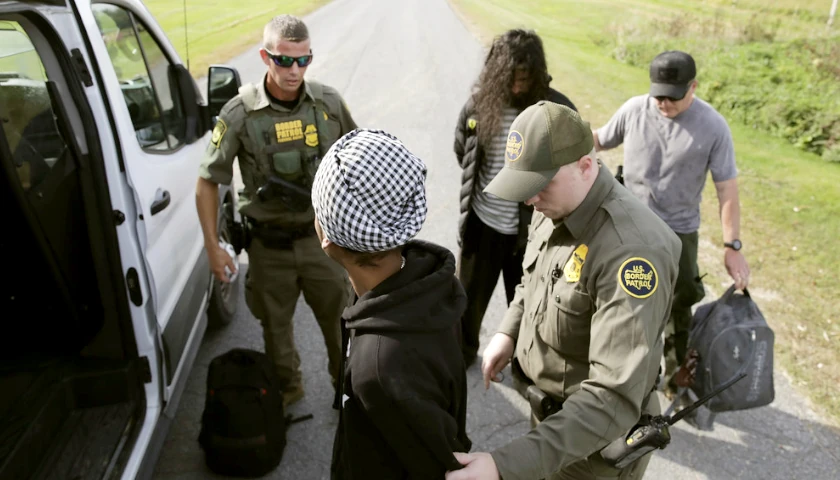by Todd Carney
It has been six months since Congress certified the results of the 2020 election, but many Republicans remain unconvinced. Some Republican officials have decided to conduct audits of the 2020 election results in their state. While Arizona has received most of the attention, several other states are potentially pursuing audits. This article takes a look at the process in each state.
Arizona
Arizona likely has gotten the most attention because it has moved the furthest along in pursuing an audit. Most of the other states discussing audits have not taken concrete action to get started yet, while Arizona’s audit is almost complete.
Arizona’s audit has focused on Maricopa County. In the run-up to the 2020 election, many experts saw Maricopa as a bellwether county for the winner of the state and the election itself. Maricopa is Arizona’s largest county and accounts for over half of the state’s population. Joe Biden carried the county, and with it the state.
The Maricopa County audit goes back to December 2020. Many Republicans nationwide and in Arizona had concerns about potential irregularities. Republicans control the State Senate in Arizona and had the power to vote to subpoena election officials to turn over the more than 2 million ballots cast in Maricopa County. Over the next month, Maricopa County officials went back and forth over how to conduct an audit. After failing to reach a compromise with county election officials, the State Senate decided to conduct its own audit through an outside firm.
Maricopa County pushed back on turning over its ballots and voting machines, but in February 2021 the State Senate won a court order forcing the county to do so. In March, the State Senate hired four companies – Wake Technology Services, CyFIR, Digital Discovery, and Cyber Ninjas – to conduct the audit. Cyber Ninjas, a Florida-based company, would lead the audit.
The audit began on April 23, 2021. “This is just a fishing expedition by people who are determined to find something wrong,” said Arizona’s Democrat Secretary of State Katie Hobbs. Much of the concern focused on Cyber Ninjas’ partisan ties and social media posts made by the company’s head, Doug Logan, about fraud in the 2020 election. Logan pledged not to play any role in the day-to-day audit.
In May, some GOP State Senators suggested that election data may have been deleted in Maricopa County, causing outrage on both sides – former President Donald Trump argued that such a move would be illegal, while Democrats claimed that the allegation proved that the audit was baseless and corrupt. Ultimately, Maricopa County proved that the election data was not missing or deleted.
Cyber Ninjas recently announced that it has finished reviewing the ballots and that it will have a report ready in a few weeks. Some Republicans are concerned that the audit will backfire and swing Arizona to the Democrats again in 2022. A recent poll showed Arizona is divided on the recount. Maricopa County has just announced it will purchase new voting machines for the 2022 election.
Georgia
A similar audit could take place in Georgia’s Fulton County, where conservative activists have sued to make it happen. On June 9, a Fulton County judge granted the activists’ request to unseal the county’s absentee ballots to undergo a similar forensic audit as the one that occurred in Maricopa County. Then, however, on June 24, the same judge dismissed most of the lawsuit due to the plaintiffs suing of public officials. The judge has left the door open for the suit to be fixed and potentially move forward.
Georgia already did two recounts, including a hand recount. Fulton County is similar to Maricopa County in that it is Georgia’s biggest county and makes up a significant part of the state’s population (10 percent). Though Fulton County is less of a swing county than Maricopa, increased turnout there played a major role in Biden’s victory.
Pennsylvania
Pennsylvania’s Republican-controlled state legislature started considering an audit in June, when several state legislators visited Arizona to observe its election audit. The state legislature had already made noise in January, when 63 of its members called on Congress to overturn the election result. Toward the end of June, a state senator who heads up a key election administration committee endorsed an Arizona-style audit, though Jake Corman, the president pro tem, has resisted these calls. Some believe that much of the audit talk is driven by a desire among Republicans running for office in competitive primaries to gain Trump’s support.
Wisconsin
In March, the Wisconsin State Assembly voted to give its election committee the authority to conduct an investigation of election results. In April, the committee took more formal steps toward an investigation. In May, General Assembly Speaker Robin Vos hired three retired police officers to work with an attorney to gather information on election irregularities; these officers have subpoena authority. Vos claimed that the move was not meant to relitigate the 2020 election but instead to present evidence to convince the state’s Democratic governor, Tony Evers, to consider an election-reform bill.
In June, the discussion over a potential audit intensified when Trump pledged to support a primary challenge to any Republican member of the state legislature who did not back an audit. Trump also accused the legislature’s Republican leadership of covering up corruption in the 2020 election. At the same time, several Republican members of the legislature also visited Arizona to learn more about its audit.
Michigan
Starting in June, several members of Michigan’s Republican Party started calling on the Republican-controlled State Senate to conduct an audit of the 2020 election. In the same month, the State Senate released a report finding “no evidence of widespread or systematic fraud in Michigan’s prosecution of the 2020 election.” Despite this report, a first-term legislator in the Michigan House of Representatives proposed a bill that would audit 10 percent of the precincts in all state counties and 20 percent of Detroit’s. Experts dismissed the bill and similar calls for an audit on the basis that many jurisdictions within the state have already conducted audits.
New Hampshire
Unlike the other states mentioned in this piece, New Hampshire did not see a particularly close presidential race in 2020. (In 2016, the results were close, and Trump blamed his loss on voter fraud.) New Hampshire caught Republicans’ attention this time because a recount in a race for the state House of Representatives showed that a Republican candidate received hundreds more votes than in the first count. Some Republicans felt that this finding proved the potential for voter fraud. Election auditors ultimately concluded that the discrepancy came from election officials folding absentee ballots in a manner that caused voting machines to misread them.
The Department of Justice and Congress are engaged in divisive actions regarding election issues, so it is perhaps not surprising that state legislatures are taking similar actions. It remains to be seen what the ramifications will be for 2022 and beyond.
– – –
Todd Carney is a writer based in Washington, D.C. The views in this piece are his alone and do not reflect the views of his employer.





